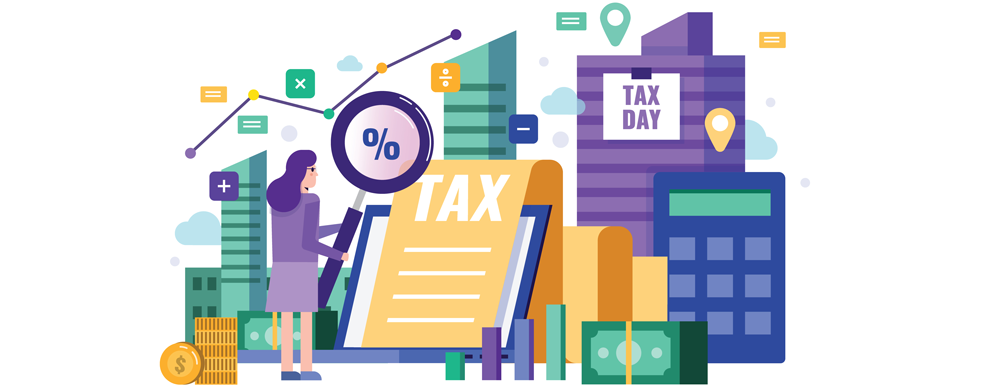Tax planning is an important element that should be part of your financial plan. If paying the least amount of income tax is your goal, then tax planning has to be a part of it and it must be started as soon as possible.
Think of tax planning as the financial analysis of a certain situation from a tax perspective. It not only helps you avoid problems with the IRS, but also has great importance when choosing a new business structure, deciding where to invest, planning for retirement, buying/renting and even facing an audit.
Don’t get fooled by the myth that only people with high incomes or those with accounting degrees are fit to do their tax planning. This is an exercise that proves useful to anyone regardless of their financial situation and knowledge of tax laws and codes, so get started as soon as possible by following this very simple guide on how to plan your taxes.
Tax Planning For Long-Term Tax Efficiency
A strategy that will prepare you with confidence for what’s to come is to give yourself time to organize your tax plan and understand the different tax saving options and schemes that are available.
By paying attention to this ahead of time, you’ll have the opportunity to actually save money, time, and worrying, so follow these very simple steps on how to plan your taxes.
#1 – Start a filing system
The simplest way to get yourself on the right path when planning your taxes is to organize all of your documents into a filing system. Documents mean any records of transactions and receipts that may affect your tax return.
By having every piece of important documents at hand when the time comes to start filing taxes, you avoid the risk of leaving anything behind.
#2 – Understand tax deduction and its requirements
You don’t need to have an accounting degree or any type of special knowledge in order to understand the basics about tax planning and filing.
A tax deduction is a dollar amount that the IRS lets you take out of your adjusted gross income, which lets you make your taxable income lower and therefore, pay a lower tax bill.
By doing the appropriate research and understanding the type of tax deductions that apply to your specific situation, and the requirements to get them, you’ll be saving yourself some money at the cost of only a few hours of your time and attention.
By doing it beforehand and planning accordingly, you’ll be on your way to making much better financial decisions to help your tax situation, which will allow you to enjoy the perks of deductions that could’ve gone unnoticed otherwise.
 #3 – Keep in mind the tax credits offered
#3 – Keep in mind the tax credits offered
Every year the type of tax credits and the time to apply for them changes. While they may only cover certain types of expenses, keeping them in mind and understanding which ones can work for you can be a great way to save money on income taxes, given that they work by reducing your actual tax bill on a dollar-for-dollar basis.
In fact, certain credits can be refundable, which means that if you owe $250 in taxes but qualify for a $1,000 credit, you would be receiving a check for $750. While these types of credits are the exception to the rule, knowing them beforehand can help you save some significant money.
If you have kids, for example, you could qualify for a child tax credit that provides up to $2,000 per kid; while low-income earners have the chance to qualify for the earned income tax credit depending on their earnings, filing status and number of dependent children.
#4 – Proper allocation of your annual compensation
Restructuring your salary with some additional components is a good way to reduce your tax liability, requiring no additional cash outflow.
Medical expenses that are reimbursed by your employer, food coupons, such as Sodexo, or a transport allowance can all be exempt and used in your favor in order to reduce your income tax liability, something that you probably wouldn’t have known if you hadn’t gotten started on your tax planning ahead of time.
#5 – Using an IRA
By using an Individual Retirement Account (IRA) instead of a savings account, you can avoid paying tax on the interest that adds up on typical bank accounts every year. In an IRA the interest accumulates tax-free, while also possibly making you eligible to claim a deduction for a certain amount of contributions made to the account annually.
As you can see, tax planning prevents surprises and makes filing your taxes easier, keeping you protected in the event of unexpected changes in your financial situation or helping you avoid an audit.
If you have decided to take control over your finances, then this guide on how to plan your taxes can be a great starting point.

